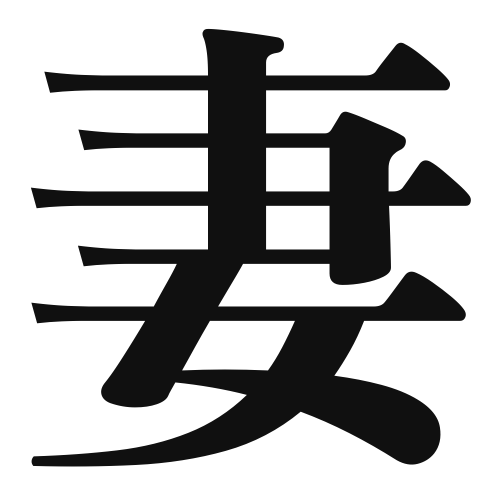1. Overview of Meaning
The kanji “妻” (read as “tsuma”) means “wife” in Japanese. It refers to a woman who is married, emphasizing her role within the family structure.
2. Formation and Radicals
The kanji “妻” is a compound character that combines elements to convey its meaning. It consists of the radical 女 (woman) and the phonetic component 𠂉, which contributes to its pronunciation. This character is categorized as a 形声文字 (phono-semantic compound), where the meaning is derived from the radical and the sound from the phonetic component.
3. Examples of Usage
Common words and phrases that include “妻” are:
- 妻子 (さいし, saishi) – wife and children
- 妻帯者 (さいたいしゃ, saitai-sha) – a married man
Example sentences in daily conversation:
- 私の妻は料理が得意です。 (Watashi no tsuma wa ryouri ga tokui desu.) – My wife is good at cooking.
- 彼は妻と一緒に旅行に行きました。 (Kare wa tsuma to issho ni ryokou ni ikimashita.) – He went on a trip with his wife.
4. Synonyms and Antonyms
Similar kanji with related meanings include:
- 嫁 (よめ, yome) – daughter-in-law or bride, which emphasizes the role of a woman in relation to her husband’s family.
Antonyms include:
- 夫 (おっと, otto) – husband, which refers to a married man.
5. Cultural and Historical Background
The kanji “妻” is deeply rooted in Japanese culture, reflecting traditional family structures where the roles of husband and wife are clearly defined. It is often used in proverbs and idiomatic expressions, such as:
- 「妻は夫の鏡」 (Tsuma wa otto no kagami) – “A wife is a mirror of her husband,” indicating that a wife’s behavior reflects on her husband.
This highlights the cultural significance of the relationship between spouses in Japan.
